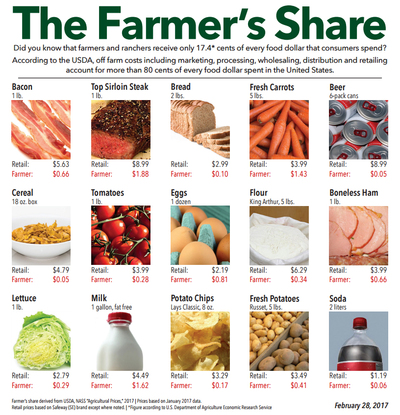BAM! Closing the Door to the Food vs. Ethanol Fuel Argument
 |
Short & Deliciously Sweet - Like Summer Ripened Sweet Corn
By Marc J. Rauch
Author of THE ETHANOL PAPERS
Exec. Vice President/Co-Publisher
THE AUTO CHANNEL
 Marc Rauch |
The food versus ethanol fuel argument is a complete canard. In 2007, the claim was made by the oil industry and its paid cronies to denounce ethanol. The allegation really took off in 2008, after the World Bank published an (erroneous) report that asserted ethanol production caused corn prices and food prices to soar.
In 2009, the report "Biofuels versus food production: Does biofuels production increase food prices?" was published by Amela Ajanovic, a Senior Researcher and Lecturer at the Institute of Energy Systems
and Electrical Drives at Vienna University of Technology. The report found that ethanol fuel production was not the cause for rising food prices. The report stated that the culprit causing corn and food prices to rise
was, in fact, crude oil prices and commodity speculators. Ms. Ajanovic's report can be found at:
 |
An external report published on Forbes.com in 2013 agrees with the World Bank's re-assessment of the food vs ethanol argument; this is it:
In 2015, environmental economist Zoltán Szabó PhD, published a report stating that ethanol fuel production and use has had little or no effect on human food supply:
There's also this 2016 report that corroborates the fact that corn ethanol does not threaten the food supply:
Very recently, just yesterday (August 23, 2021), my position about the Food vs. Ethanol Food Argument was challenged on the RealClearEnergy.org website by Stephen Maloney, an ethanol opponent (or if that's too strong, then at least a doubter). In support of his opposing position he posted a statement from a 2017 report written by Professor Judit Oláh and four other professors from the University of Debrecen in Hungary. The sentence that was posted on the RealClearEnergy.org webpage to undermine me was:
"High fuel prices combined with a rising biofuel production created a link between crude oil and food prices."
To really rub it in and make me sweat, Mr. Maloney stated that this report was peer reviewed, intimating - I presume- that my book has not been peer reviewed. He added a final sneary-spike to his challenge:
-
"I suppose these authors also know nothing about this issue - whereas you have special insights."
I had never come across this report before, nor was I familiar with any of the professors who had contributed to the University of Debrecen study. To be honest, despite any puffery I may exhibit when I
respond to opponents, I have no special insight into these matters. I'm a mere mortal armed only with years of research, analysis, hands-on experimentation, and a fair ability to articulate facts. Even so, and with no modicum of
trepidation, I did a Google search for the entire report, which is titled:
I downloaded it, and read it. That's right, I read it all!
Indeed, Stephen Maloney was correct, the sentence he posted to contradict me, to disgrace me, to embarrass and belittle me, was in the conclusion of the report. (Cue the dramatic music)
Unfortunately for Mr. Maloney, he apparently didn't read the sentence that was just slightly above the sentence he deemed sufficient to throw me off my high, high horse. That sentence for the report's conclusion states:
"Our results show that the main driver for food price fluctuation is mainly the oil price shock."
So, the high fuel prices mentioned in Maloney's salvo against ethanol and me didn't refer to the price of ethanol fuel, it referred to the high price of petroleum oil fuels: gasoline and diesel.
In other words, the Hungarian professors agreed with the conclusions stated in the World Bank retractions and the other reports that I cited above, and that is: Demand for more corn, and increased ethanol production were not the causes of the dramatic food price increases in the latter part of the 2000 to 2010 decade. The cause was soaring petroleum oil prices that affected transportation, packaging, and printing costs, along with overly stimulated commodity speculators who pushed prices up. A review of the resources used by Professors Oláh, et al, included some of the same resources I have used for more than a decade to explain away this issue.
Here's some additional perspective on the issue: In a $4.00 box of breakfast corn flakes there is about a nickel's worth of corn. Even if the price of corn doubled, the 10 cents worth of corn would have minimal effect on the price of the box. The following graphic gives a great illustration of how much "farm product" is used in different food items versus the retail price of those items:
The amount of corn used in very recent times for ethanol fuel (not counting the Covid-19 period) is vastly higher than it was 10, 15, 20 years ago. However, the total volume of corn crops has also sharply risen, and the amount of corn designated for ethanol fuel use is only about the same proportionate amount that it was 10, 15, 20 years ago. Therefore, there has been no food shortage due to the use of corn for ethanol. There are no reports of Americans not being able to buy as much corn flakes, corn chips, corn tortillas, popcorn, corn-on-the-cob, and canned corn as they want.
Furthermore, the remnant of the corn used to make ethanol fuel is often used as high-protein feed for livestock that are consequently eaten by humans. As David Blume, author of the great "ALCOHOL CAN BE A GAS," always says: "The result is not fuel instead of food, it is more fuel and more food."
One last citation on the Food vs Fuel issue: Way back in 2007, our website TheAutoChannel.com, posted a video on YouTube that explained away the bogus Food vs. Fuel canard before the issue got hot and the World Bank 'Food vs. Fuel' hysteria went viral. The significance of my hammering on this point is that this was never a legitimate issue, and here we are, more than a decade after the World Bank retracted the claim, and there are still some nitwits citing the story as if the issue was ever accurate and of vital concern. Here's the 2007 video:
The silliest of all arguments made against the use of corn to make ethanol fuel is that it is causing (or contributing to) worldwide hunger...that starving people are being deprived of corn-based foods. It's as if America and American farmers have a patent on growing corn and they are keeping the technology of growing corn out of the hands of the poor starving nations. There is no such patent, and there are no such restrictions. Corn is grown on every continent except Antarctica (for obvious reasons). Moreover, America and several American companies are actively engaged in helping the people of disadvantaged nations to grow corn. The efforts by POET Ethanol, the world's largest ethanol producer, is a wonderful example of the assistance provided to these people. All the great advancements and innovations of the last couple of decades that allowed American farmers to substantially increase their corn yields (while using less land, water, and fertilizer) are openly shared with farmers around the world.
The door to the Food vs. Fuel Argument is slammed shut! The spread of lies about ethanol remains, but like all the other negative myths against ethanol fuel there is no longer any reason to tolerate the spread of the food vs. fuel lie.



